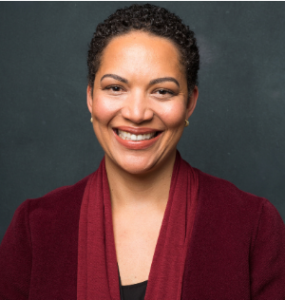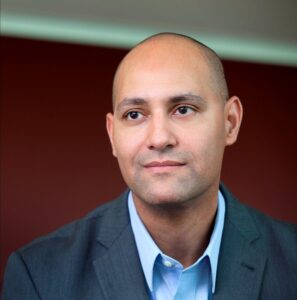The COVID-19 pandemic and questions about vaccine equity has brought many of the world’s greatest health equity issues into sharper focus.
In the blog post below, we’ll hear directly from our clients about this important topic and provide a snapshot of our work to help ensure that all people have access to quality healthcare.
Client Perspectives on Health Equity
Changing the Mindset about Health Equity
Interview with Dr. Mary-Ann Etiebet, Associate Vice President, Health Equity, Merck & Co., Inc., and Lead, Merck for Mothers

Q: What do you see as the pharmaceutical industry’s role in advancing health equity?
I’d like to flip that question and have us think about the enormous opportunity for our industry and for society when we consider the many different ways that pharma can help advance health equity. Often the conversation around health equity is limited to what the healthcare delivery system can do, but when you refocus people on the goal – more equitable health outcomes – you realize that it is a bigger conversation and that only a whole of society approach will get us there.
For example, we know that 80 percent of the drivers of health equity lie outside the health sector. When you embed a health equity mindset into how you think about business strategy, suddenly all these opportunities present themselves across the pharma value chain. For example, your supplier strategy can help drive economic opportunity. Through OneTen, Merck is helping to lead a coalition of companies that aim to upskill, hire, and promote one million Black Americans over the next 10 years into family-sustaining jobs with opportunities for advancement.
By embedding a health equity mindset into what we do day in and day out as part of core business operations, we will have a greater chance of moving the needle towards a healthier, more equitable society than what we could achieve through philanthropic ventures alone.
Q: How should we be thinking differently about health equity from a business perspective?
There’s a consensus that a diverse workforce and an inclusive workplace are good for the bottom line. Today, it is critical for us to create the same shared understanding that equity, the ‘E’ in DE&I, is also a powerful driver for business growth and transformation. Right now, many companies are leaving that tool on the table. If we are not innovating and collaborating to help ensure that our products result in equitable health outcomes across diverse populations – especially since some historically underserved communities are fast-growing segments of the population with growing disease burdens – then we’re missing out on current and future opportunities to grow our business and demonstrate our value to society.
Q: What excites you most about Merck’s work in health equity and why?
I’m struck by the groundswell of activities already underway in teams across our company to address inequities – from integrating social determinants of health considerations into clinical trial recruitment and commercialization strategies, to meeting people where they are in our patient engagement strategies, and to strengthening the ability of health ecosystems to improve access to quality care through our social impact investments. This really is a bottoms-up movement, fueled by the passion and values and commitment of employees. Now it’s time to take that momentum, extract learnings from what’s happening, and hold ourselves accountable for delivering impact for patients and communities.
Advancing Health Equity from an R&D Perspective
Interview with Dr. Chris Reddick, Vice President and Head, R&D Health Equity, Takeda

Q: What do you see as the pharmaceutical industry’s role in advancing health equity?
When most people think about pharma’s role in health equity, they focus almost exclusively on the need to diversify clinical trials. It’s true that there is a very real and pressing need to diversify clinical trials to better reflect the patients we serve, especially those from traditionally underrepresented populations. And Takeda and our peers are making strides there.
At the same time, it’s important that we work to address health disparities and the underlying social determinants of health that disproportionately impact underserved communities, particularly those of color. We need to broaden our perspective and think about how our work as an industry can help to strengthen underserved communities long-term. How can we help to increase jobs, get young people involved in STEM, and help improve the capabilities of the healthcare systems that are rooted in communities?
Q: What excites you most about Takeda’s work in health equity and why?
At Takeda, we are committed to creating a more diverse, equitable, and inclusive culture – not only within our own walls, but also within communities.
We established our Center for Health Equity and Patient Affairs and embedded it within our R&D organization to realize this ambition. The center works to identify and address health inequities, provide early patient access to Takeda medicines, accelerate the time to diagnosis for children with rare diseases, and engage patients throughout the drug development process.
Integrating health equity into the R&D pathway has required us to challenge ourselves in myriad ways, from adapting our programs, plans, and processes to address identified health inequities to engaging with a more diverse network of patients, communities, partners, and suppliers. Through our programs, we are also sharing our expertise and skills to strengthen communities to improve patient care more sustainably. We hope that this innovative model will enable Takeda to create a more inclusive ecosystem and build greater trust with communities and patients around the world.
Q: What do you see as the big opportunities to do more in R&D to advance health equity?
We, as industry, need to engage communities more intentionally. This includes partnerships with organizations that R&D teams in the pharmaceutical industry don’t typically work with, such as NGOs and other community-based organizations. These partners are critical because they know what is needed in a community and they’ve earned the trust of that community over decades. We can learn so much from our partners: what the community has already done, where it wants to focus next, and what the gaps and barriers are. This approach will hopefully get us closer to more equitable patient outcomes.
As of the summer of 2021.